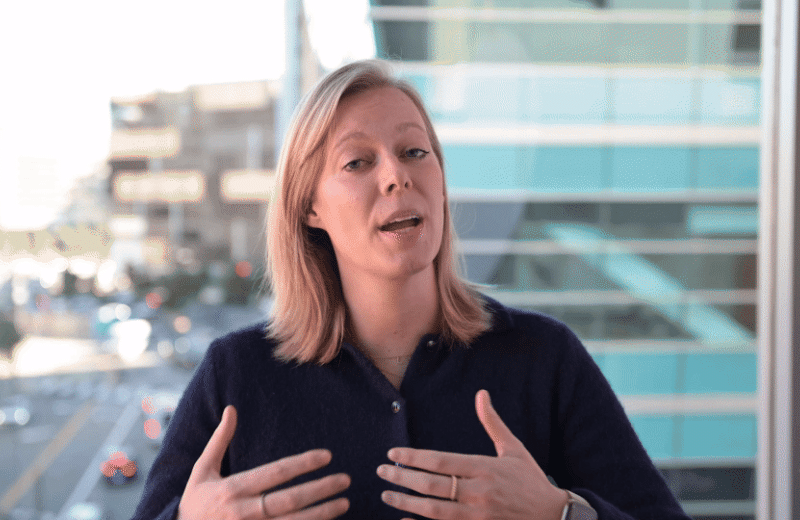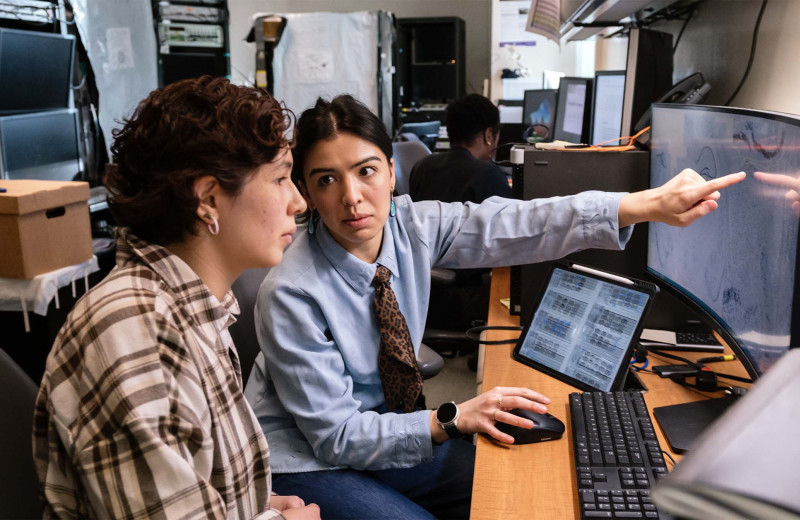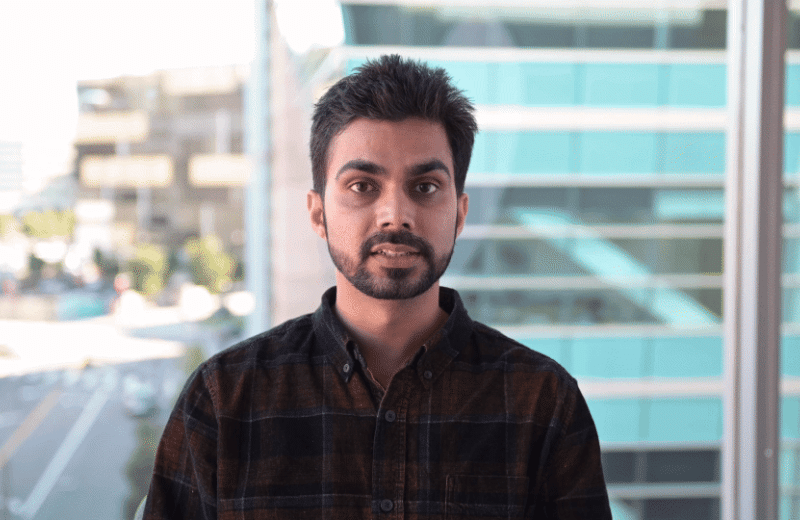Gladstone NOW: The Campaign Join Us on the Journey✕
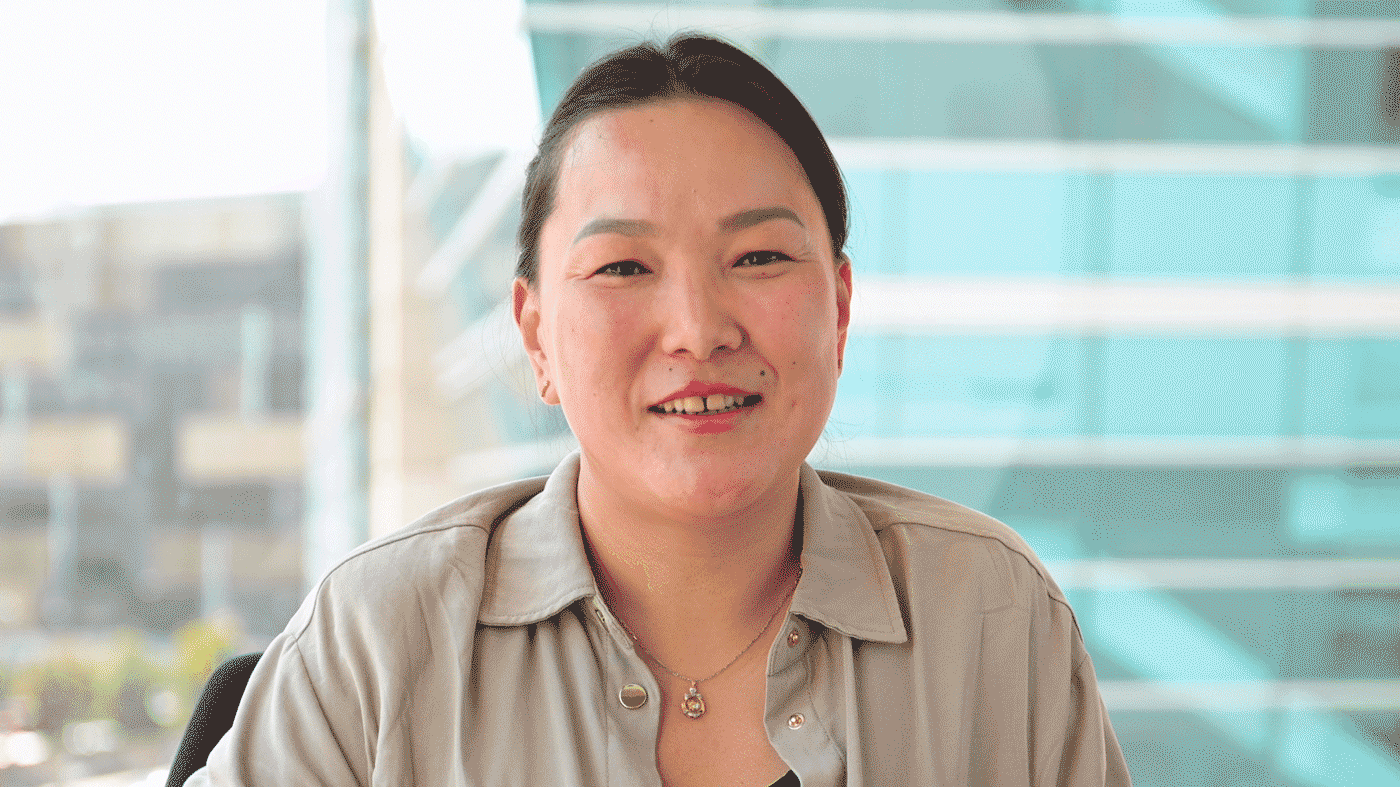
Tselmen Daria is a postdoc and bioinformatics fellow in the lab of Catherine Tcheandjieu and a 2024 PUMAS mentor.
Tselmen Daria (she/her), MD, PhD, is a postdoc and bioinformatics fellow in the lab of Catherine Tcheandjieu. Daria attended medical school in Ulaanbaatar, Mongolia—her home country. After working for a few years in medical research, she was granted a scholarship from the German Academic Exchange Agency for her doctoral studies. She completed her MD/PhD focused on human genetics in Germany.
She is currently volunteering as a mentor for the 2024 PUMAS program, which provides hands-on experience to community college students who are from traditionally underrepresented backgrounds.
What brought you to Gladstone?
I came to Gladstone to pursue my career goals in academia, driven by my passion for science and its potential to improve health. I am particularly motivated to contribute to impactful projects in the vast field of genetics.
What do you like about Gladstone?
I love Gladstone because it's a unique place that fosters skills and nourishes ideas, providing a fantastic environment for postdocs. Joining Gladstone has been incredibly rewarding, offering the support and oversight I need to develop my scientific career.
Can you describe your current research project?
I’m a data scientist in genetics, trying to understand the link between genetic risk factors and their predisposition to disease.
Were you interested in science as a child?
As a child, I was interested in science because of my mother. She was a doctor who worked with neonatal infants. I used to go to her work and see how she treated prematurely born infants and her dedication to her work was incredible. That’s how I became interested in becoming a scientist.
In addition, now that I look back to my high school years, I remember I liked biology and was keen to advance to the next level at any subject.
What or who influenced your decision to work in science?
I’ll never forget a lecture given on the central dogma of molecular biology during medical school. From that time on, I was intrigued by molecular biology and genetics—how the small parts of our genes, such as RNAs, can have an effect like switching on and off various genes, and visualizing this in my mind by thinking of how this will make an impact in curing diseases was an inspiration for me.
Why did you decide to go to graduate school?
After graduating, I saw myself more in the medical science field. The motto of my medical school “evidence based medicine” was the motivation for me to further pursue the discovery of evidence of medical complication. Since I was involved in research activities, I chose to do my master’s and then my doctoral studies in genetics.
What do you do when you are not working?
I'm a very nature-oriented person. I like to have a kind of contact with Mother Nature—go camping, hiking, especially going to the mountains. It’s nice to feel how small you are from the peak of a mountain.
What do you enjoy most about being a PUMAS mentor?
Being a scientist for 15 years, I’ve had a lot of great mentors. Because of this, I also saw myself becoming a mentor. I think being a good mentor is one of the most important parts of science.
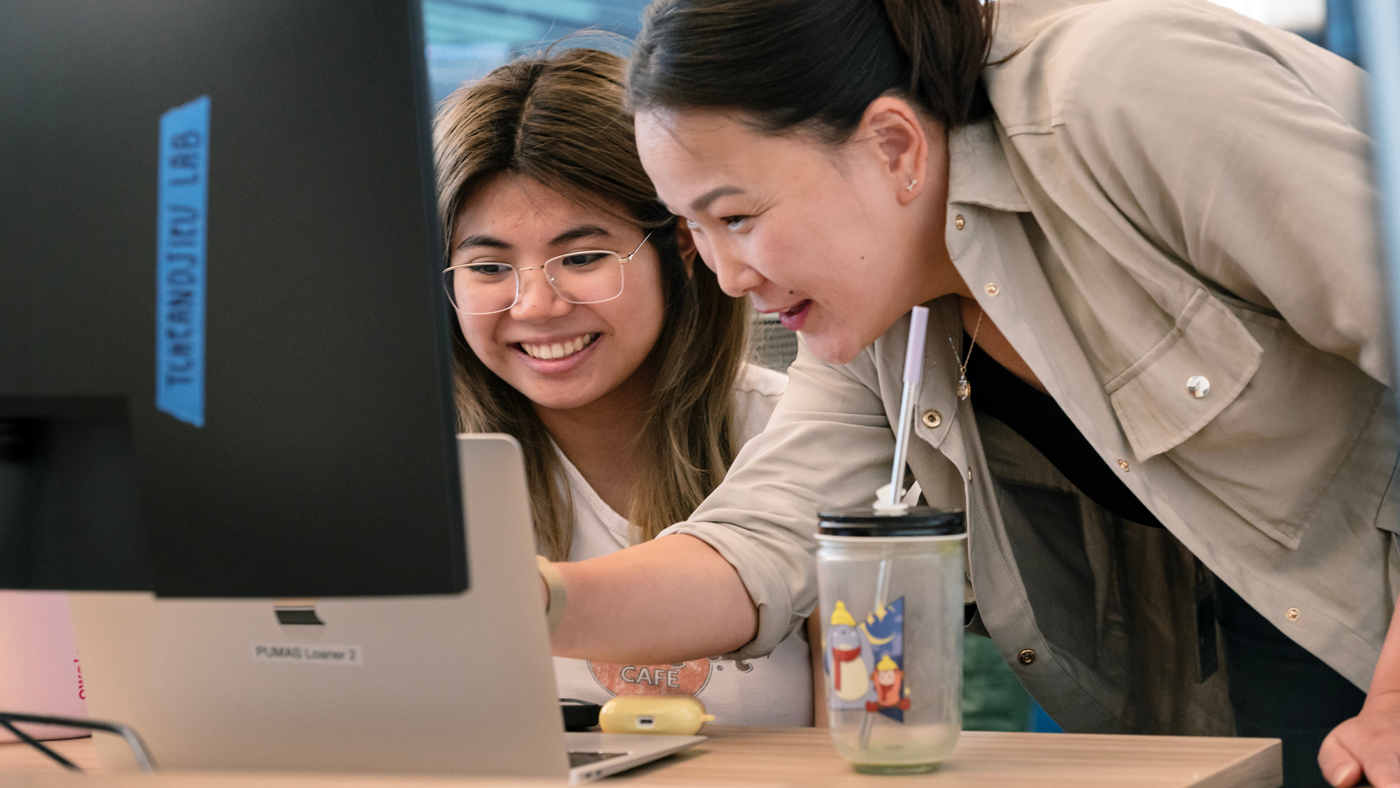
Tselmen Daria (right) mentored Clare Dominique Sanchez (left) in the Tcheandjieu Lab as part of the PUMAS program.
Being a PUMAS mentor gives me an opportunity to learn how to interact with mentees and how to best teach someone the work that I do.
In addition, I come from a developing part of the world, where a scarcity of resources in the scientific field is common. I was inspired by the PUMAS program and I thought my experience resembled the PUMAS program, working with people who have also lacked resources to pursue their scientific and career goals. Being a mentor for this program gives me an opportunity to motivate the new generation of scientists.
Want to Join the Team?
Our people are our most important asset. We offer a wide array of career opportunities both in our administrative offices and in our labs.
Explore CareersMeet Gladstone: Alisa Dietl
Meet Gladstone: Alisa Dietl
Alisa Dietl brings her international training and clinical perspective to Gladstone, where she works to engineer more effective cancer immunotherapies for solid tumors.
Graduate Students and Postdocs Profile Cancer Pelka LabVoices of Outstanding Mentorship
Voices of Outstanding Mentorship
Three recipients of Gladstone’s Outstanding Mentoring Award share their personal approaches to mentorship and reflect how this passion has shaped their own growth as leaders.
Profile Roan Lab Graduate Students and PostdocsMeet Gladstone: Shyam Jinagal
Meet Gladstone: Shyam Jinagal
Shyam Jinagal explores how genetics, aging, and regeneration shape the heart—and how those insights could one day restore heart function after injury.
Graduate Students and Postdocs Profile Cardiovascular Disease Srivastava Lab

